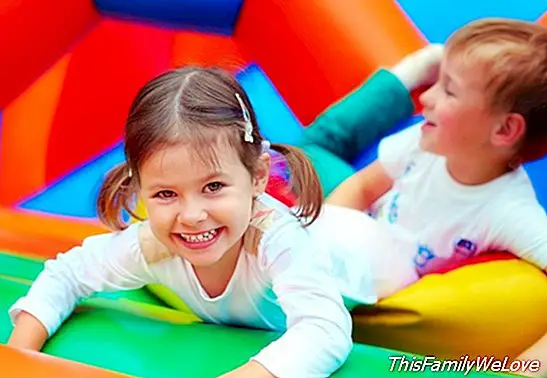The educational role of the game in children

Many parents consider one waste of time that in schools dedicate much of the day to play. They wonder when their children learn if they spend the day playing. They do not know that precisely the game is the most powerful pedagogical tool in the learning of their children and that through it they get to know much more than it seems.
There is no doubt that the social structure has changed a lot in recent decades and with it, childhood. This has led us to understand children as little adults. For the elderly, the game is a leisure activity and free time while work is an obligatory and necessary activity. We think that our children should learn in the same way.
We consider that the teaching hours are to work as we understand the work. And, on the contrary, the game is an activity exclusively reserved for playground hours so that children can clear and get distracted.
However, it is impossible to conceive the child of Early Childhood Education supporting a full day sitting in his chair, listening to the explanations of the teacher and also do all the exercises that are proposed. To reach that point there has to be a previous development that includes knowing the world around you, learning to interpret it, interacting with it and acquiring a series of skills and abilities. All this, together, is the development of intelligence.
Ideas to understand the educational role of the game for children
First we have to know that the way children understand and profess reality is different from that of adults. For years, he stopped thinking about the child as a mere receiver of knowledge. He has his own role in this process, he is the protagonist, because it is he who is really building his own learning through the game. Y that game is evolving according to its maturational development. At the beginning, in the first years, it focuses more on the motor plane, it is based on movement. Little by little it is acquiring a more symbolic and social character until arriving at the regulated games.
The child learns only what It captures his attention and awakens an interest in him. It also has the need to develop in different areas, both intellectual, as well as social, physical, emotional, etc. He gets it through the game, which becomes his main activity in the children's stage. Because Teachers use it in a planned, structured and intentional way as a teaching and learning method. In addition to getting the child to learn the different established contents, contributes to the development of skills and skills necessary for future learning, the development of strategies and the formation of attitudes and values.
How is the game used at school?
This month, in most schools, work is being done in the fall. What would happen if, when we picked up our son from school, the answer to our battery of questions regarding the day out: "I played with the leaves"?
That simple answer does not meet the expectations we have for what we understand as a school day. Do not we take our children to school to learn? However, that response of the child summarizes a whole set of learnings through experience and the senses that internalize efficiently. This game, as the child calls it, is an intentional activity organized by the teacher capable of covering all areas.
The teacher will have told you about fall. You will have read a story related to the subject and the children share their previous knowledge about it. In the working hours, they go out to the patio and make an observation of the environment and begin to interact playing with the leaves accompanied by their teacher who proposes different activities:
- They take the leaves, they make them creak with their hands.
- They make mountains. Some are bigger, others smaller, compare them and count them.
- Jump the little mounds of leaves, they run in zig-zag between them.
- They use a lot of leaves to throw them into the air. How many heaps are left?
- The leaves are of different colors, we identify them. They name other objects they know of the same colors.
- Separate the sheets by size.
- They look for other elements that have appeared in the environment such as sticks and pineapples and make artistic compositions or a nice mural to decorate the class or the hallway.
Although the child play and have fun, he is not aware that he has worked his gross and fine psychomotor skills, necessary for literacy, he has learned notions of mathematical logic such as sizes, shapes, numbers, the concepts plus and minus, much and little, classifications, serializations, approximation to the sum and subtraction. He has become aware of his abilities and his difficulties. He has learned new vocabulary, has expressed feelings that help him to know and regulate his emotions.And, indirectly, education in values has been worked with respect for the environment, to what other colleagues do, the norms of coexistence, etc.
With this game, the child will have acquired the necessary knowledge to make the cards of the class book with which he will complete the learning process.
As we see, lYoung children learn in a globalized way, learning is not structured in subjects. Through a common thread that is able to awaken the interest of the child, all the necessary learning is integrated for its development. The most effective way is through the game that has the ability to evolve with the child, adapt to the different stages increasing their difficulty depending on their needs to lead to more complex learning. For example, in order to successfully achieve the learning of writing there must be a progressive training of manual skills.
Cristina Palacios Hernando. Pedagogue




